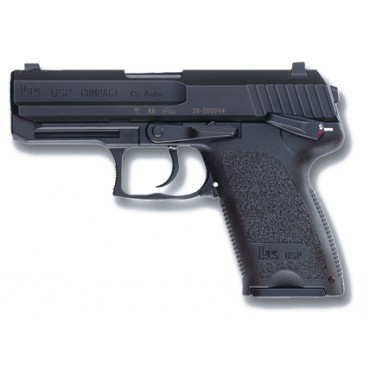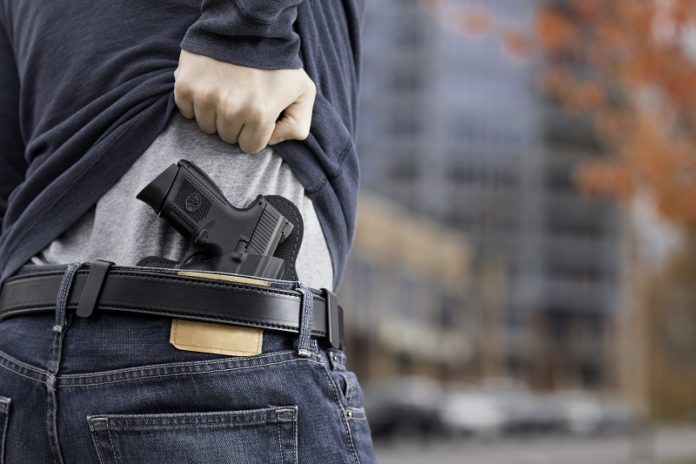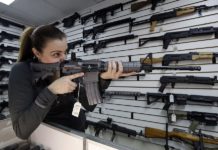Concealed Carry Weapon (CCW) license considerations. This article covers general considerations that may be helpful for people considering concealed carry for the first time. Keep in mind that you should never accept free advice at face value on the internet, legal or otherwise. Be informed, research the specific regulations for the area in which you live.
There are approximately 17 million Americans that have concealed carry licenses in the US and I am one of them. A concealed carry license (sometimes referred to as a CCW), is an exercise of your individual constitutional rights but it also carries great responsibility. Having a weapon on your person in public does not grant you any defacto law enforcement powers but it does make you responsible for the safety of those around you. A person with a CCW license is a US citizen who has been vetted by law enforcement and has no criminal history. According to research into FBI crime data by Professor John R. Lott in his book “More Guns, Less Crime”, a significant number of crimes are prevented by CCW holders. The book also covers many of the false stereotypes and urban myths around the Second Amendment and is loaded with facts and figures. I highly recommend adding it your reading collection. The fact that more crimes are prevented or stopped by legal gun owners gets lost in coverage by mainstream media narrative and their manufactured news. Of course, successful prevention of crimes and happy endings don’t generate ratings for the media outlets and there is always an inherent bias on the part of the left-wing, pro-government control, establishment media against legal personal gun ownership.
The US is unique in the world in that our Constitution is designed to protect the rights of the citizens over the power of the government. A keystone to this concept is the right to bare arms enshrined in the Second Amendment which is an ultimate expression of individual rights over the rule of government. Exercising your Second Amendment rights through concealed carry not only help protect you and your loved ones from becoming victims but it also reinforces individual freedom and liberty through the safe and regular exercise of your rights. There are no overarching Federal guidelines over concealed carry, states and municipalities enact their own specific regulations around CCW licenses or have banned concealed carry and guns outright. While it is debatable as to whether the granting of CCW licenses by states is an unconstitutional restriction of an inherent right to self-defense, it is generally seen as an appropriate method to place some sort of vetting controls over concealed carry weapons. CCW license programs across the country have been very successful in the senses that crimes committed by CCW holders are near non-existent.
State CCW issuance generally revolve around requiring some sort of training along with a background check. However, while the licensing process may be designed to help you understand some of the basics of the law, it is woefully inadequate to prepare you for a situation where you may need to defend yourself or someone else.
Pictured below: Full-sized H&K USP pistol in 9mm

For those considering applying for a concealed carry license, here are three general considerations for concealed carry.
#1 Know the laws
Laws vary from state to state and what is legal in one state can get you arrested in another. You should research and memorize the specific CCW laws of your respective state as well as any states you will be visiting or travelling through. Most CCW license requirements typically require some form of firearms training and passing an exam. In general there are five basic commonalities on concealed carry and the use of deadly force (again, check your local and state laws). These are:
- Prohibitions at establishments where alcohol is served
- Prohibitions at public buildings and schools
- Duty to seek less lethal resolutions before using deadly force
- Duty to retreat unless within your own home in some states (aka castle doctrine)
- Deadly force justified only if your life or someone else’s is in danger or if protecting someone from rape
In general, a responsible CCW holder will not seek conflict which could escalate into a deadly force situations and will use deadly force only when lives are in danger and no other recourse is available.
#2 Practice, practice, practice…
I’m a firm believer that there is absolutely no reason to carry a concealed weapon if you are not proficient in using it should a situation require you to do so. The cursory “training” required by most states for CCW licensing falls far short of what skills you will need. Such training is typically nothing more than a video overview of state laws and regulation on appropriate carry and use of a firearm. Some states licensing requirements also include firing a few shots on the range to demonstrate you can actually operate a pistol and hit a target. None of the licensing requirements will prepare you for the situations you may run into where you may actually need to use your pistol to defend yourself or others. I recall seeing a dashcam video of a shootout between police and a bad guy where the two men stood within 20 feet of each other and fired off an entire magazine worth of bullets with no one hit and both men running away. Being able to draw your weapon and hit a target only comes from repeated practice to develop muscle memory. Another key skill is having the situational awareness to know when it is appropriate (and necessary) to draw your weapon and to take cover at the same time.
- Practice drawing your pistol and hit your target with the first shot, repeat, repeat
- Take an NRA sponsored defensive handgun class, refresh as needed
- Clean and check your gun regularly even if it hasn’t been fired
- Cycle through old ammunition and replace with new
#3 What and how to carry
Revolvers, double-action, or single-action? The short answer is whatever is comfortable for regular carry and easy to shoot in an emergency situation. What I’ve learned after many years as a CCW holder is there is a trade-off between size and accuracy. I’ve fired pistols in the military and the first pistol I purchased was the H&K USP, a full-sized pistol in 9mm. I liked it because of the excellent accuracy and reliability, plus it was a double-action pistol which means it can be carried in the hammer-down position for greater safety and the first pull of the trigger is much heavier which prevents accidental discharge. The USP was also lightweight, unlike my Sig Sauer P220 in .45 caliber which was too heavy for regular carry. However, the full-sized frame on my USP still made it bulky and difficult to carry comfortably. Recently, I purchased a Springfield XDS in 9mm and it has quickly become my new favorite carry gun. It is the perfect size for comfortable concealed carry. The XDS may not be able to put the bullet through the same hole like my USP but it is still accurate enough to hit a target from 7 yards away, the typical range for such encounters. The point is there are always trade-offs and you have to find what works for you.
Another thing I’ve learned through a lifetime of trial and error is that not all holsters are created equal and you have to make an effort to find one that is comfortable for you. I’ve tried them all, inside the pant, outside the pant, paddle holsters, belt loop, horizontal and vertical shoulder rigs. I’ve always blamed my lack of success in finding a comfortable holster on the holster itself but now I realize part of it was simply the guns I was carrying were too big and heavy.
Picture below: My new favorite concealed carry pistol, the Springfield XDS in 9mm.


























One other important piece of the CCW considerations…
Insurance. If you ever need to use your weapon you will need help getting out from under consequences. USCCA says it better (US Concealed Carry)
http://www.usconcealedcarry.com